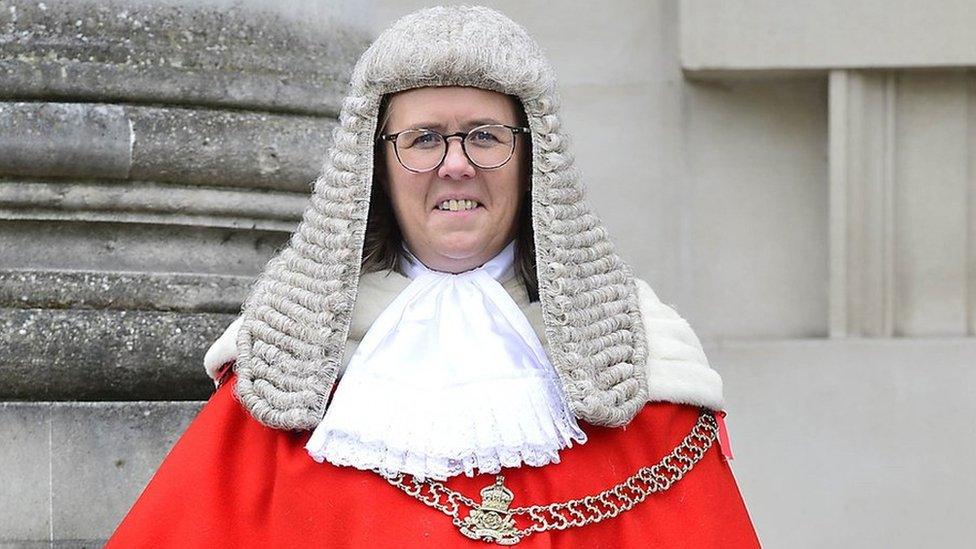NI courts: TV cameras allowed to film for first time
- Published

Dame Siobhan Keegan is the first woman chief justice in Northern Ireland's history
Television cameras are being allowed to film inside courts in Northern Ireland for the first time on Friday.
A pilot to broadcast Court of Appeal judgements will take place later.
Broadcasting in courts can already happen in England, Scotland and Wales, in certain circumstances.
Lady Chief Justice Dame Siobhan Keegan said allowing TV cameras in courts in Northern Ireland will give the public a better understanding of the legal process.
Broadcasters, including “óĻó“«Ć½ News NI and Sky News, will take part in the initiative.
"The principle of open justice is of fundamental importance," said Dame Siobhan.
"I have long thought that the broadcasting of our senior courts would represent a very positive step in promoting open justice, allowing greater transparency and helping the public to better understand the complex decisions that judges make."
But any decision to remove the ban on recording and broadcasting in Northern Ireland requires a change in the law.
Justice Minister Naomi Long says she is "open to discussion" on the matter.
"Allowing broadcasting in courts would increase transparency and enable the public to view decisions being made by the judiciary in Northern Ireland," said the Alliance Party leader.
"This can only be a good thing."
Justice Minister Naomi Long has welcomed the pilot
A spokesperson for “óĻó“«Ć½ News NI, UTV, PA Media, ITN and Sky News described the pilot as a "very positive development".
"More transparency and openness around the justice system can only be a good thing for all our audiences and will help their understanding of this important function in society," the spokesperson added.
Friday's pilot is a test and footage will be only be seen by the judiciary.
'History has been made'
Olivia O'Kane, a commercial litigation lawyer with experience in media law, told “óĻó“«Ć½ News NI's Evening Extra it is still the "early stages" but "today history has been made".
If the law is changed to remove the recording and broadcasting ban, Ms O'Kane said it will "bring the courtroom into our very living room".
She added the approach is a "new and fresh positive step towards more open justice and bringing better access to courts".
Related topics
- Published27 July 2022